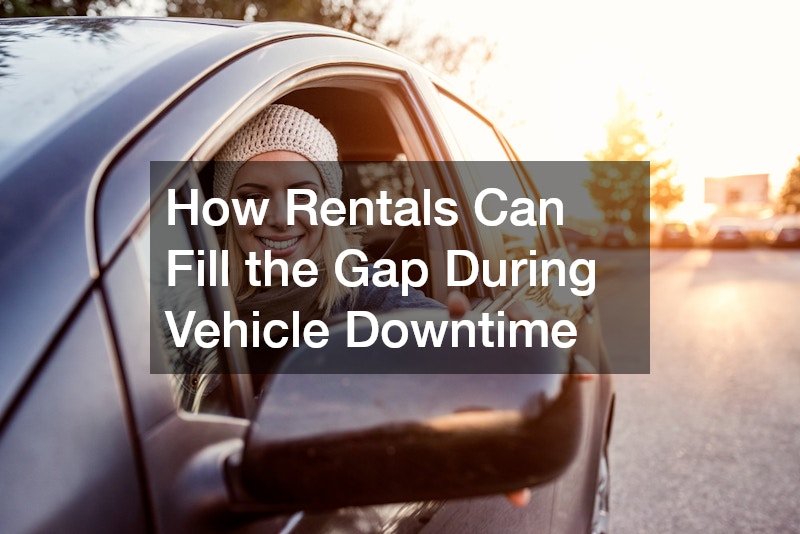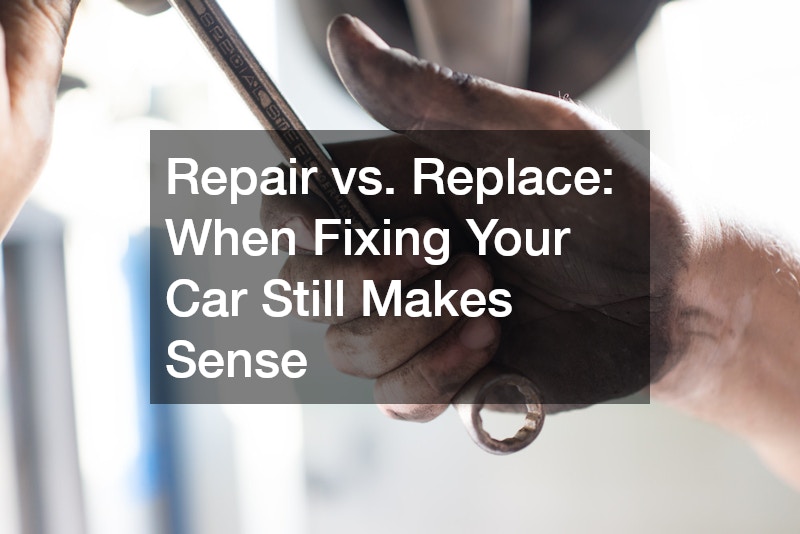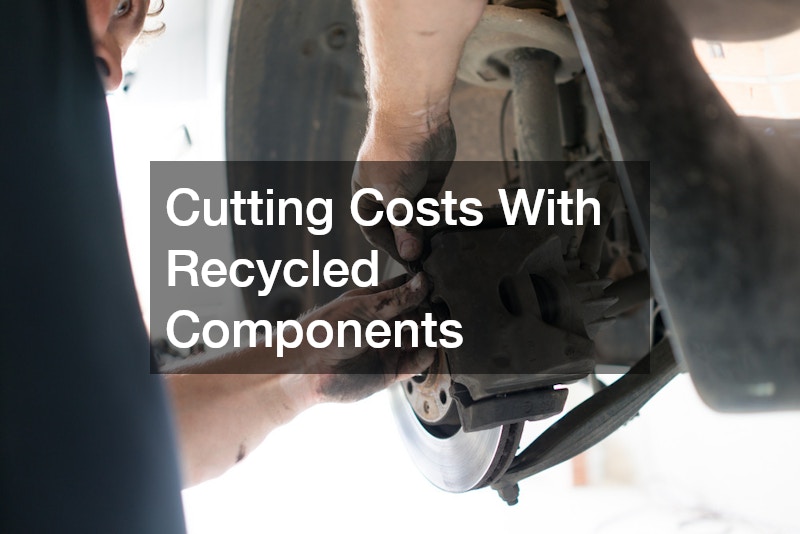Owning a car is a necessity for many, but knowing when to repair, rent, or retire it can be a challenge. Every car reaches a point where maintenance becomes costly, repairs feel constant, or the convenience of renting seems more appealing than the burden of ownership. This guide is designed to help everyday drivers evaluate their options through practical, actionable advice—whether you’re managing a surprise breakdown, considering a rental for a short-term solution, or thinking of letting go of your long-time ride. By understanding the full range of possibilities, you can make smarter decisions, save money, and feel confident in how you manage your vehicle’s life cycle.
Many people wait too long to address issues, leading to higher expenses and stressful emergencies. But with proactive thinking, you can gain control over the situation and avoid being stuck without reliable transportation. Whether you’re commuting daily, hauling equipment, or taking occasional road trips, the way you handle repairs, rentals, or retirement has a direct impact on your finances and peace of mind. This blog will walk you through every key consideration so you’re ready to make the most informed decision possible.
Recognizing Early Warning Signs Before Major Repairs
The first step to smart decision-making is learning to read the warning signs. Most drivers encounter telltale symptoms that indicate their car is heading toward trouble. Unusual noises, sluggish acceleration, or dashboard alerts shouldn’t be ignored. More importantly, take time to notice how your car feels on the road—especially when it comes to braking performance. Issues with car brakes are among the most dangerous and should never be overlooked. A grinding sound, soft pedal, or vibration during braking could signal worn pads or worse, a compromised system. Regular inspections and early detection can save you from more expensive repairs down the line. Getting ahead of small problems often prevents major failures. Keeping a written record of issues and how often they occur can help you decide whether your car is still reliable or becoming a money pit. If the list keeps growing despite recent fixes, it might be time to consider other options like rentals or retirement.
When Selling Makes Sense: Knowing When to Let Go

There comes a point where investing in your current car no longer makes financial sense. Maybe the engine is failing, or the repair costs now exceed the car’s actual value. This is when it’s worth exploring services that offer cash for junk cars. These companies specialize in taking non-functioning or older vehicles off your hands, sometimes even offering free pickup and immediate cash payouts. While sentimental attachment can make it difficult to say goodbye, the practical benefits can’t be ignored—especially if the car is immobile, leaking fluids, or accumulating parking tickets while sitting unused. The best time to sell is before your vehicle becomes a total liability. Check local and national companies to compare offers, and be sure to remove all personal items before making the handoff. Selling your car for cash gives you a clean break, helps recoup some money, and frees up space on your property or driveway. For many drivers, this is the most practical step toward moving on from an aging or unreliable vehicle.
Understanding the True Cost of Emergency Assistance
If your car breaks down unexpectedly, one of your first calls may be to a car towing service. While these services are incredibly helpful in urgent situations, they can also be expensive depending on distance, timing, and membership discounts—or lack thereof. Towing fees typically range from $75 to $250, and that doesn’t include the cost of subsequent repairs or diagnostics. If your vehicle frequently needs to be towed, that’s a red flag. Instead of treating these instances as isolated events, consider them part of a larger pattern. You might be throwing money at a car that’s no longer roadworthy. Always factor in towing costs when calculating the total cost of ownership, especially when comparing that to short-term rentals or potential replacements. It’s also a good idea to keep the number of a trusted local towing company saved in your phone, so you’re not scrambling in a stressful moment. Over time, repeated towing expenses can rival monthly car payments—another clue that it may be time to reassess your options.
How Rentals Can Fill the Gap During Vehicle Downtime

Sometimes, your car is in the shop longer than expected, or you’re between vehicles altogether. That’s when a van rental can be a practical solution, especially for families, businesses, or home improvement projects. Vans offer ample space and flexibility that traditional cars often lack, making them ideal for transporting furniture, equipment, or multiple passengers. Rental costs are usually calculated by the day or week, and many rental companies offer insurance packages for peace of mind. Renting a van eliminates the stress of overloading your personal car or borrowing a friend’s car. It also prevents further wear and tear on your own car, especially when hauling heavy items. If your current car is in and out of the shop, or simply doesn’t suit your temporary needs, a rental can buy you time without locking you into a long-term financial commitment. For many, using a rental occasionally is far more cost-effective than maintaining a second car full-time.
The Temporary Advantage of Daily and Weekly Rentals
If your car is undergoing repairs but you still need transportation for work, errands, or school, looking into a car for rent might be your best bet. Many rental companies now offer flexible packages that range from a few hours to several weeks, accommodating a variety of short-term needs. Whether your vehicle is waiting on parts or you’re deciding whether to replace it, a rental can help you stay mobile without rushing into a big purchase. Renting also gives you the opportunity to test different makes and models, especially if you’re considering a new car in the near future. You’ll get to experience fuel economy, tech features, and performance in real-world conditions—something that’s difficult to assess from a showroom test drive. While the daily rate may seem high, it’s often more affordable than continuing to dump money into unreliable transportation. If you find yourself renting often, that’s a strong sign your current vehicle may no longer be serving your needs.
Repair vs. Replace: When Fixing Your Car Still Makes Sense

While retiring a car may be necessary in some cases, auto repair remains a valuable and often cost-effective solution—especially when your car has relatively low mileage and a strong maintenance record. Not all problems warrant a replacement. Minor engine issues, suspension problems, or cosmetic wear can often be fixed for a fraction of what a new car would cost. The key is understanding the severity of the issue and comparing repair costs to the car’s current value. Diagnostic fees can help identify problems early, while routine maintenance ensures your car stays reliable longer. Establishing a relationship with a trusted shop can also lead to better pricing and service over time. Look for ASE-certified technicians and online reviews that highlight honest, straightforward assessments. If your mechanic believes the issue is fixable and your budget allows it, repairing your car can extend its life by several years, making it a smart option for drivers not ready to retire or replace their current ride.
Trusting the Experts: Why a Good Mechanic Matters
Not all repair shops are created equal, and the value of a skilled auto mechanic can’t be overstated. A knowledgeable mechanic does more than fix the problem—they offer long-term guidance, suggest preventive maintenance, and help you prioritize issues based on urgency and cost. They can also help you understand what symptoms to look out for so you can avoid costly emergencies down the line. Finding a reliable mechanic often starts with referrals. Ask friends, family, or coworkers for recommendations, and check online reviews to see how shops handle complex repairs. A good mechanic will be transparent about your options and never push unnecessary work. Whether your car needs a major overhaul or a routine tune-up, the right mechanic can be a partner in helping you make smarter financial and operational decisions. Long-term car ownership becomes significantly less stressful when you know you have someone in your corner offering trustworthy advice.
Cutting Costs With Recycled Components

One effective way to reduce the cost of car maintenance is by purchasing used auto parts when possible. Salvage yards and online resellers offer high-quality components at a fraction of dealership prices. This option is particularly useful for older vehicles where brand-new parts may be cost-prohibitive or hard to find. From mirrors and headlights to transmissions and engine components, used parts can make repairs more affordable without sacrificing safety or performance. Always ensure the part is compatible with your specific vehicle model and sourced from a reputable vendor. Some shops will even allow you to bring in your own parts for installation, which can significantly reduce your bill. If you’re trying to extend the life of your current vehicle on a budget, integrating used parts into your repair plan is a smart, resource-efficient strategy. Just be sure to ask about return policies and warranties so you’re covered in case the part doesn’t perform as expected.
Enhancing Functionality Without Buying New
If your current car or truck is in good mechanical shape but lacks modern features, investing in aftermarket truck accessories can breathe new life into your ride. These upgrades range from functional additions like tow hitches and roof racks to aesthetic improvements such as seat covers and custom lighting. Aftermarket parts also include advanced tech like backup cameras, Bluetooth receivers, and upgraded infotainment systems—all of which improve your driving experience. For truck owners, especially, these accessories can tailor the vehicle to meet work or recreational needs without purchasing a new model. Installation is often straightforward, and many parts come with manufacturer warranties. When done thoughtfully, these upgrades can increase the utility and comfort of your current vehicle, delaying the need for a replacement. It’s a great middle ground for those not quite ready to buy something new but looking for ways to improve their current transportation setup.
When Accidents Happen: Evaluating Damage and Repairs
Even minor accidents can leave your car in rough shape. Deciding what to do next depends on the extent of the damage and the age of your car. Body collision repair shops specialize in restoring vehicles after fender benders, side swipes, or more serious accidents. These shops evaluate structural damage, replace panels, repaint surfaces, and ensure that your car is safe to drive again. Insurance may cover part or all of the repair, but out-of-pocket costs can vary greatly. If the damage is mostly cosmetic and your car is still operational, some drivers choose to live with the dents to save money. However, if your car has been involved in a major collision, it’s important to ensure that it’s not just safe but also worth repairing. A qualified technician can assess whether the cost of repair is justified or if retiring the car makes more sense financially. Safety should always be your first priority when deciding how to proceed.
Every driver’s situation is different, and there is no one-size-fits-all solution. Whether you choose to repair, rent, or retire your car will depend on its age, condition, and your lifestyle needs. It’s important to evaluate each option with a long-term perspective—factoring in the total cost of ownership, your budget, and the value you place on convenience and peace of mind. Use this guide as a starting point to ask the right questions and consider all possible avenues. With the right knowledge, you can make informed choices that save you time, money, and frustration in the long run. And remember, your car should make your life easier—not more stressful.
If you’ve reached the point where you’re unsure what to do next, don’t hesitate to consult with a professional mechanic, insurance provider, or trusted rental agency. These experts can offer insights that help clarify your options, particularly when you’re facing a major repair or contemplating a new car altogether. The sooner you take action, the more control you’ll have over your transportation needs—and the less likely you are to be caught off guard when your current vehicle reaches its limit.



